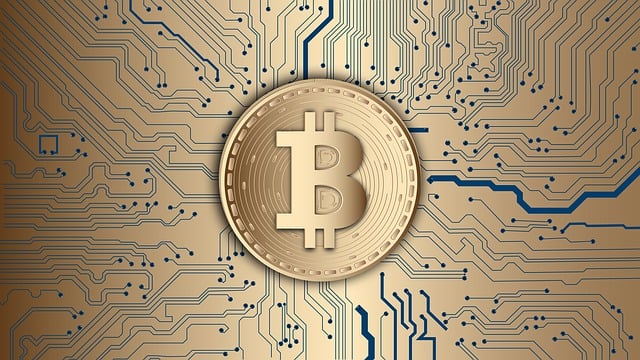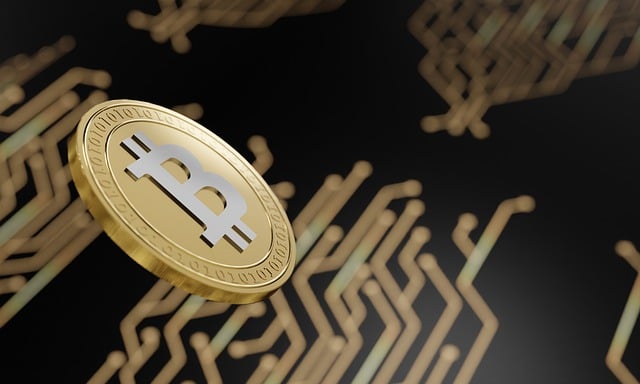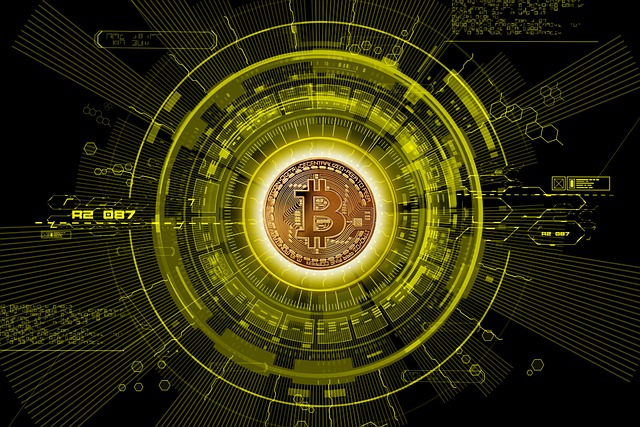Decentralized Finance (DeFi) is a revolutionary concept utilizing blockchain technology and smart contracts to transform traditional financial systems by eliminating intermediaries. It offers global, transparent services like lending, borrowing, trading, and yield farming, empowering individuals with greater control over their assets and fostering financial inclusion. While risks exist, particularly in default mechanisms, DeFi's potential lies in creating a more inclusive, secure, and efficient financial ecosystem through collaboration, technological advancements, and education, reshaping the global financial landscape.
In the ever-evolving landscape of decentralized finance (DeFi), understanding default is crucial for unlocking its full potential. This article navigates the complex world of DeFi, beginning with an exploration of its foundational concepts. We then delve into the rising phenomenon of default in DeFi, analyzing its impact as a new paradigm. By weighing the benefits and risks, we uncover the spectrum of possibilities. Finally, we look ahead to the future, examining strategies to overcome challenges and embrace the transformative opportunities that DeFi offers.
- Understanding Decentralized Finance (DeFi): Unlocking the Basics
- The Rise of Default in DeFi: A New Paradigm
- Benefits and Risks: Exploring the Spectrum of DeFi's Default
- Shaping the Future: Overcoming Challenges and Embracing Opportunities
Understanding Decentralized Finance (DeFi): Unlocking the Basics

Decentralized Finance (DeFi) is a revolutionary concept that aims to recreate traditional financial systems on a blockchain network, removing intermediaries like banks. At its core, DeFi leverages smart contracts to enable peer-to-peer transactions and access to various financial services without relying on centralized authority figures. This innovative approach has the potential to democratize finance, offering individuals more control over their assets and providing unprecedented accessibility to financial tools globally.
The beauty of DeFi lies in its ability to unlock a range of opportunities such as lending, borrowing, trading, and yield farming. Users can participate in these activities by locking up their cryptocurrencies as collateral, earning interest, and even profiting from market movements. This decentralized model fosters transparency, security, and financial inclusion, as anyone with an internet connection can access and contribute to this emerging ecosystem. As DeFi continues to evolve, its potential to disrupt the traditional finance sector and empower users worldwide is becoming increasingly clear.
The Rise of Default in DeFi: A New Paradigm

In the dynamic landscape of decentralized finance (DeFi), a new paradigm is emerging: the rise of default. As DeFi continues to evolve, its potential for transforming traditional financial systems becomes increasingly evident. The concept of default in DeFi refers to the mechanism by which borrowers can access liquidity without the need for collateral, marking a radical departure from the conventional lending models.
This innovative approach leverages smart contracts and blockchain technology to create decentralized lending platforms where borrowers can take out loans backed solely by their ability to repay. By removing the requirement for traditional collateral, DeFi’s default mechanisms open doors for a broader range of individuals to access credit, fostering financial inclusion and democratizing access to capital. Such developments hold immense promise for reshaping the way we interact with finance, harnessing the power of technology to create a more inclusive, transparent, and efficient financial ecosystem.
Benefits and Risks: Exploring the Spectrum of DeFi's Default

Decentralized finance (DeFi) offers a promising future with immense potential, but it’s not without risks. One of the key aspects that sets DeFi apart from traditional financial systems is its default spectrum. On one end, defaults can lead to significant losses, as seen in various high-risk DeFi projects where investors have suffered substantial setbacks. However, these failures also expose and highlight vulnerabilities, driving innovation and improvement within the ecosystem.
On the flip side, defaults can be catalysts for learning and growth. They encourage developers and investors alike to adopt more robust risk management strategies, enhance security measures, and create more resilient protocols. As DeFi matures, a balance between taking calculated risks and implementing stringent safety nets will likely emerge, ultimately shaping a more stable and accessible financial landscape for all.
Shaping the Future: Overcoming Challenges and Embracing Opportunities

The future of finance is taking shape, and at its forefront is decentralized finance (DeFi), a revolutionary concept reshaping the way we interact with money. By leveraging blockchain technology, DeFi offers a more inclusive, transparent, and efficient financial ecosystem, transcending traditional borders and intermediaries. This burgeoning field presents an array of opportunities, from open access to global markets to innovative products catering to diverse needs.
However, alongside these prospects lie challenges that must be overcome. Regulatory uncertainties, security concerns, and user experience barriers test the maturity of DeFi. Yet, by addressing these issues through collaboration, technological advancement, and education, decentralized finance can unlock its full potential. Embracing this journey paves the way for a more democratic and equitable financial future.
Decentralized Finance (DeFi) has emerged as a revolutionary force, offering unprecedented access to financial services through blockchain technology. While the rise of default in DeFi presents new challenges, it also unlocks a spectrum of opportunities. By understanding the benefits and risks, we can navigate this evolving landscape and harness its potential to shape a more inclusive and efficient financial future. The journey ahead is promising, as we overcome obstacles and embrace the transformative power of DeFi.
